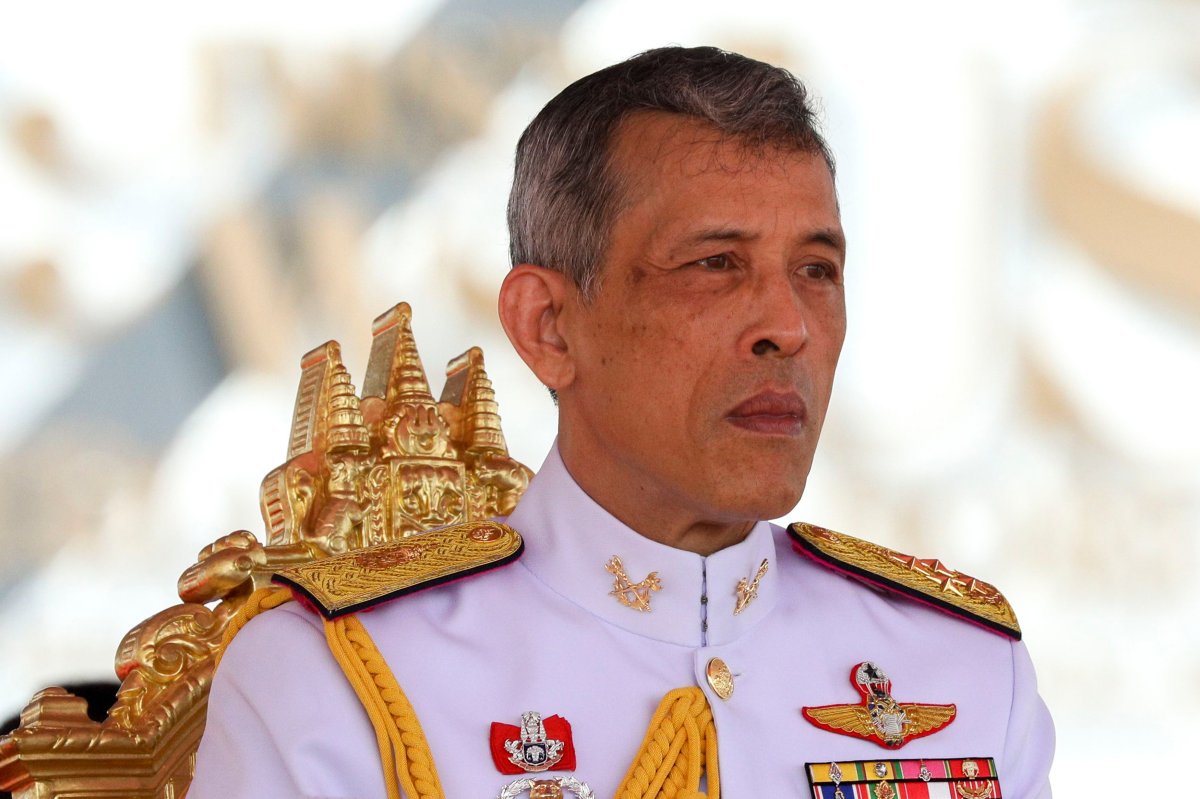Facebook could be facing legal action from the government of Thailand if it doesn’t remove content that it believes criticizes its king.

The social media giant has less than a day to block the offending pages, or the government of Thailand will take legal action.
Part of the content in question is reportedly a video showing Thailand’s King Vajiralongkorn walking through a mall wearing a crop top, which reveals a multitude of tattoos.
Vice News said the video was provided by Andrew Marshall, a journalist and Thai government critic, and filmed by a Thai citizen in a mall in Munich in June 2016, before Vajiralongkorn took the throne in October.
Marshall told Vice the video could have “a significant impact if it was widely seen,” and “it would help puncture the bubble of the monarchy.”
The video, and other content is in violation of the country’s lese-majeste laws, which don’t allow any criticism of the monarchy.
On Friday, Takorn Tantasith, secretary-general of Thailand’s National Broadcasting and Telecommunications Commission, told reporters the social media company had until Tuesday, May 16, at 10 a.m. to remove 309 pages. (That’s 11 p.m. ET Monday night.)
“If Facebook still shows content declared illegal by court orders in Thailand, action must be taken against Facebook Thailand,” Takorn said.
Last week, Facebook told the Bangkok Post that the company agreed to comply with the government’s request, and had blocked 178 pages, but there were 131 pages still accessible with the controversial video of the king.
The pages are not taken down from the social media platform, but rather geolocked, meaning people in Thailand can’t view them, but people in the rest of the world can still see them.
READ MORE: Facebook removed over 30,000 fake news accounts ahead of French and British elections
In an emailed statement to Global News, Facebook wouldn’t say whether or not it had blocked the remaining 131 pages in Thailand, but said if the pages violated Thai law, they would be removed.
“When governments believe that something on the Internet violates their laws, they may contact companies like Facebook and ask us to restrict access to that content. When we receive such a request, we review it to determine if it puts us on notice of unlawful content,” a Facebook spokesperson wrote.
“If we determine that it does, then we make it unavailable in the relevant country or territory and notify people who try to access it why it is restricted.”
What is the lese-majeste law?
Article 112 of Thailand’s criminal states that: “Whoever, defames, insults or threatens the King, the Queen, the Heir-apparent or the Regent, shall be punished with imprisonment of three to 15 years.”
But there’s no description or explanation of what constitutes defamation or an insult. Complaints can be filed by anyone, against anyone.
Thailand‘s military government has ramped up online censorship, particularly of perceived insults to monarchy, since seizing power in a 2014 coup.
READ MORE: Thai mob seeking man who allegedly insulted dead king dispersed by police
The Army Cyber Centre of Thailand has identified 820 cases of lese majeste since October 2016.
Maj. Gen. Ritthi Intharawut of the centre told The Post that 365 of them were on Facebook.
Facebook has already complied with the government on several occasions, Marshall explained in January.
“Facebook is now geoblocking some posts by me, Ajarn Somsak Jeamteerasakul and others,” he wrote on Facebook.
“I don’t blame Facebook for having to do it, because on my Facebook page, I regularly and explicitly flout Thai law, specifically the absurd lese majeste law. Facebook has an obligation to work with local laws in all the jurisdictions where they operate, and I respect that.”
Facebook’s own Government Requests report shows that 50 “pieces of content” were restricted in accordance with requests from the Thai Ministry of Information and Communication Technology for 2016, with 40 of them occurring in the second half of the year.
The centre identified 450 cases on Youtube, which is owned by Google. According to Google’s transparency report, it complied with 85 per cent of the government requests between July and December 2016, and removed around 1,331 pages.
— With files from Reuters.




Comments